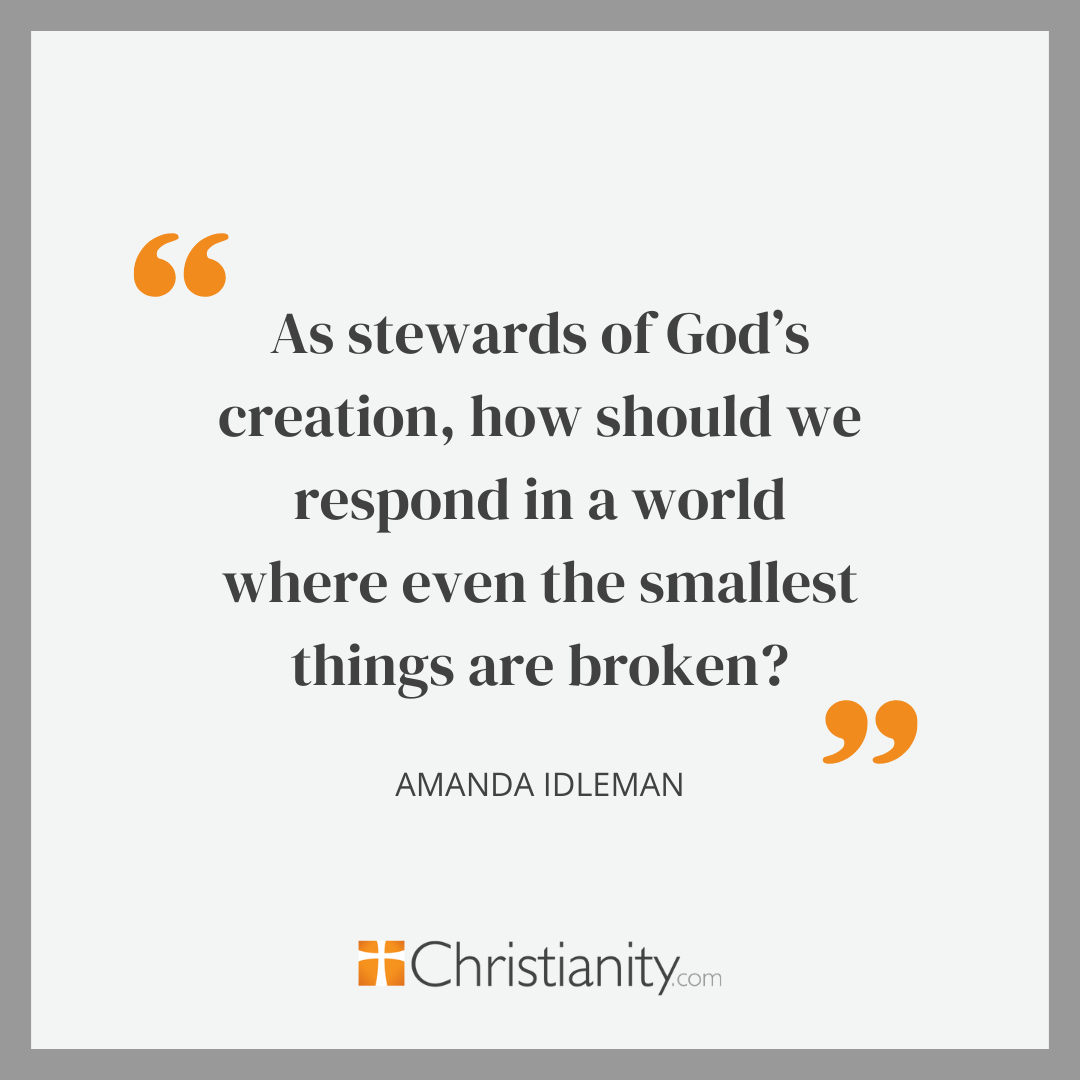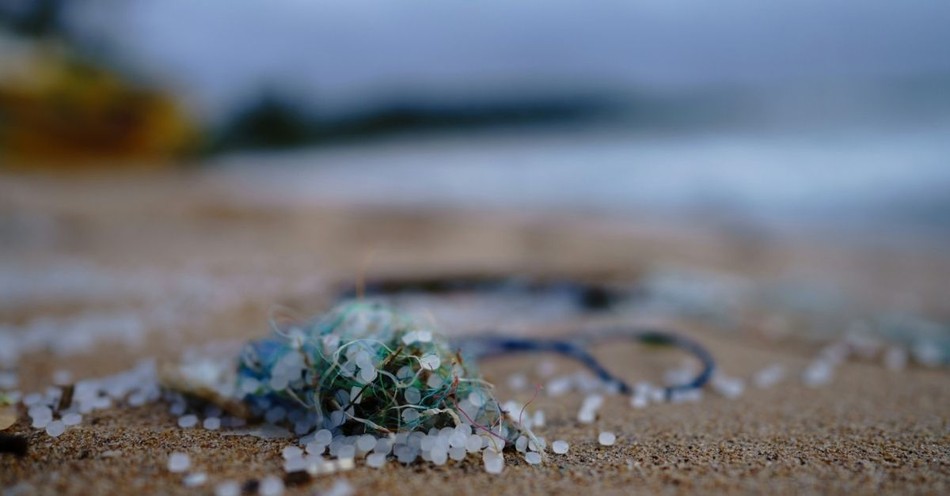Microplastics, tiny particles found in everything from bottled water to human organs, now exist in the land, sea, and air. Plastics are being discovered throughout our food chain and even within the human body. While we do not yet understand their full impact on human health, scientists are rapidly discovering connections between our exposure to these particles and various health conditions, including liver damage and hormone disruption. Most concerning studies indicate that when humans are exposed to microplastics, our chance of a heart attack, stroke, or death increases.
Not only are these plastics a threat to human health, but they are also harming our planet. Pollution is ranked the top threat in the World Economic Forum’s Global Risks Report 2025 as urgently requiring the world’s action. These plastics are destroying our oceans. In a recent study conducted in Oregon, microplastics were discovered in 98.9% of seafood samples! It’s estimated that most people eat, drink, or breathe in between 78,000 and 211,000 microplastic particles annually. These particles may be tiny, but their impact is widespread. As stewards of God’s creation, how should Christians respond to a world where even the smallest things are broken?
The first response to such troubling statistics is lament. We know our world is not as it should be, and the evidence surrounds us. We see creation and humanity struggle every day. Jeremiah 9:10 declares, “I will take up weeping and wailing for the mountains, and a lamentation for the pastures of the wilderness, because they are laid waste so that no one passes through, and the lowing of cattle is not heard; both the birds of the air and the beasts have fled and are gone.”
Jeremiah articulates the despair we experience when we see God’s creation experience destruction. We lament that the oceans are polluted with harmful microplastics that negatively impact all sea life and the animals and humans that depend on these creatures for sustenance.
We lament that while human inventions can improve life, they can also easily cause destruction. We often don’t know the actual consequences of innovation until it’s far too late to stop its impact. We grieve because our bodies, our children's bodies, and the bodies of generations to come are being silently poisoned by these tiny over-produced plastics. We should not shy away from the real grief for the ways God’s good Creation groans under the weight of sin and death.
Grief is never passed over in the Bible, but in our culture, it’s typically avoided or shrugged off. We avoid feeling the sadness that is natural in response to injustice, but there is real value in these feelings. Even Jesus paused his work to feel, grieve, and weep (John 11:35), even with the complete knowledge that all would be made whole again through His power and goodness. Pausing to grieve is a holy act acknowledging the real loss in our world, as things are not as they should be.

Why Is it Important to Pray about This?
This lamentation is not a hopeless act. We do not give up, but our grief first brings us to our knees. As we acknowledge that the problem is real, prolific, and overwhelming, we then go to the one who can make things new again. Jeremiah 33:3 encourages, “Call to me and I will answer you, and tell you great and hidden things that you have not known.”
Jeremiah once again reminds us that when we are unsure how to respond to our circumstances, we can call out to God, and he will answer. He is faithful to reveal creative, even miraculous solutions to our problems. God’s people need to pray for the renewal of our Earth, for the groaning we see around us to lead us to repentance, and for Heaven to come down.
Pray that those who create and distribute these harmful products to the masses are convicted, and alternatives will become more readily available and utilized. Pray for ways to clean up the mess we’ve made and for protection from further harm from these particles. Ask for wisdom on being better stewards of our world and bodies, looking for ways to avoid plastics and use them more responsibly. Pray for open doors to share our concerns with people in power so changes will be made!
4 Ways You Can Help Decrease Microplastics Pollution
The next step for believers is to take action! We are to be agents of light in this dark world, helping to bring Heaven’s goodness down to our world. The Christian faith is an action-oriented belief system.
1. Advocate for change in the regulations around plastics.
We need manufacturers, officials, and lawmakers to start mandating that we change the way in which we use plastics. They are prolific, and the problem won’t start improving until we begin to restrict the amount of plastic that is being used. Use your voice to pressure people in power to use alternative packaging for their products. Call your representatives, petition companies, and share the need for change with the world.
2. Buy products that limit their plastic usage.
As consumers, we are essentially using our dollars to speak to those who create our products. Choosing products that are more environmentally friendly and people-friendly is one way to make a difference. Electing brands that avoid or limit their use of plastics is another way to make a difference.
Protect yourself and your loved ones by limiting your exposure to microplastics. Don’t heat food in plastic containers. Choose an alternative material for cutting boards. Try to buy foods that are not packaged in plastic, and consider buying in bulk when possible. Wash your clothing less frequently to reduce microfibers from shedding. Vacuum and dust are often used to capture microplastics and avoid breathing them in. Avoid plastic when purchasing cups, utensils, plates, and more. We want to avoid plastics in our food as much as possible, as they harm the body. Also, consider a filtration system for your water to reduce your exposure.
3. Support efforts to clean up our world!
This could be taking steps to recycle and supporting recycling programs in your community so less plastic is created; it is just being reused. There are several groups working to clean up our oceans, and we can find ways to support these efforts. When we are outside, we can also be careful not to harm our spaces. Make sure to properly dispose of trash and clean up trash when we see it.
4. Raise awareness about this issue.
Many of us are not aware of how plastics harm not only the environment but also our bodies. Please share what you know about microplastics' harms and steps we can take to limit our exposure to them. We want to do all we can to protect our loved ones from the negative impacts of microplastic exposure.
We all live stuck in the groaning but anticipating the day when all things are made new. Revelation 21 tells of a time when there will be a new earth and heaven. The world we know is dying, but God plans to restore his creation completely. That does not mean we trash our world; we are called to be stewards of this planet (Genesis 2:15), but we don’t have to live in despair because the best is yet to come.
Photo Credit: ©Unsplash/Sören Funk





